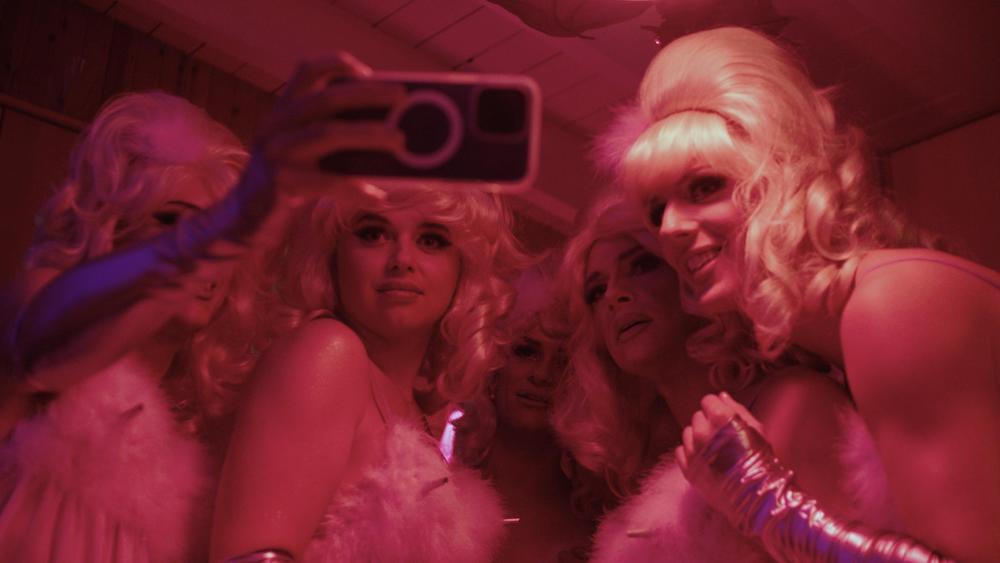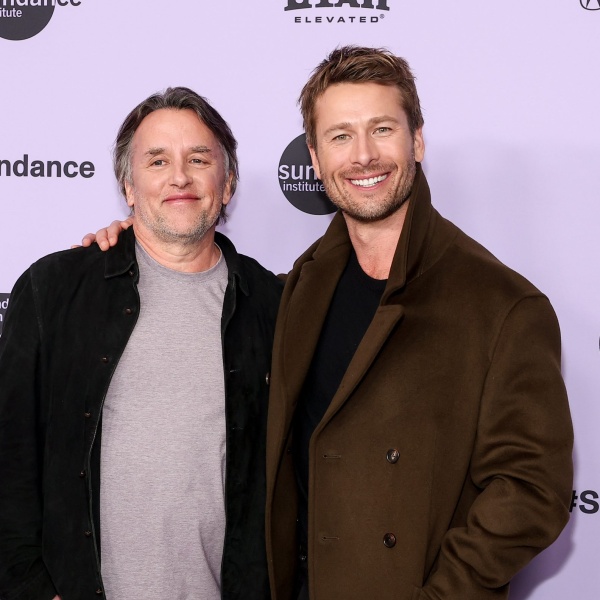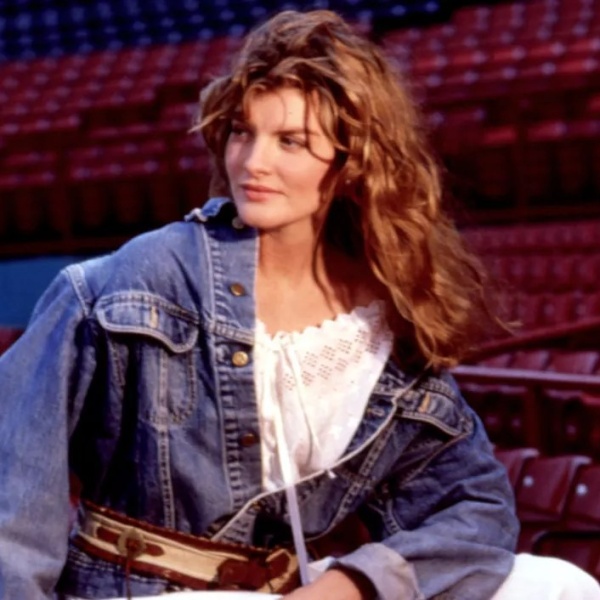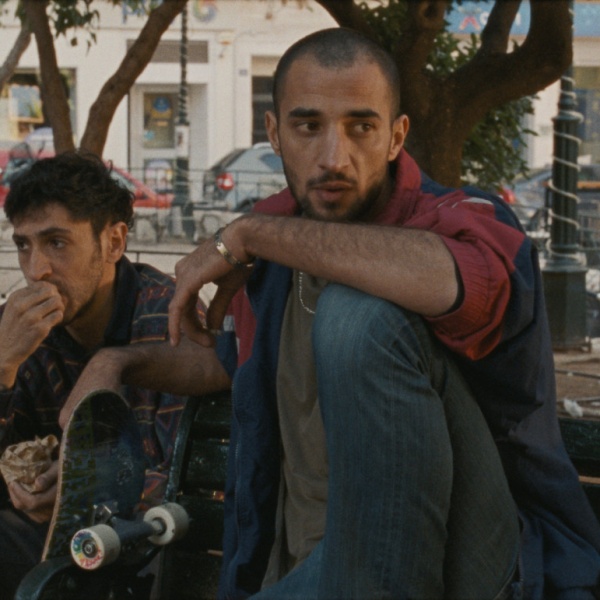Pride started early in 2024 with the SXSW premiere of “Sense8” actor Brian J. Smith’s debut documentary “A House Is Not a Disco,” a kaleidoscopic look at the LGBT past and present of Fire Island. Part fly-on-the-wall immersion — Smith invokes Frederick Wiseman when talking about it — part introductory guide for newbies who maybe knew a bit on how Fire Island Pines is a gay mecca but don’t really know what all the fuss is about, it’s an exuberant, colorful, many-faceted view of a place where many gay men first felt fully free to be themselves completely uninhibited. Or as Smith puts it, it was where he “learned how to be a gay man.”
Still seeking distribution, “A House Is Not a Disco” is remarkable for capturing that Fire Island Pines is a place where joy is currency — but far from the only emotion to be experienced there. Smith shows how the Pines have changed over the years and how it was arguably exclusionary — especially to people of color — for a good part of its history, and, of course, how it was rocked to its core at the height of the AIDS crisis. As much as the beach is a place for epic parties with thumping music and brightly colored lights and acres of exposed skin, it’s also where so many who lost their lives during the crisis wanted their ashes to be scattered.
This is a rich story to tell, and Smith and producer Joe Conforti have been taking it from festival to festival to get the word out. Their latest stop? The Sarasota Film Festival on Florida’s Gulf Coast, where an enthusiastic audience peppered the filmmakers with questions after the screening during the Q&A I moderated. This is a film about a very specific and unique place, but it’s capable of reaching audiences anywhere, including a state where “don’t say gay” has been the message coming out of the governor’s mansion, but whose populace is far more diverse and embracing. The Q&A, lightly edited for clarity, is below.
IndieWire: Brian, how did you first discover the Pines?
Smith: 2015, actually, was the first time I went out there. I don’t know if anyone in here has seen “Sense8” [in which Smith, a longtime actor in film, TV, and stage productions, played a major role] but that was actually the June that “Sense8” had come out. The level of recognition I had at the Pines was [unlike] anything I’d had happen before. I went to the Tea Dance for the first time, which is a big afternoon party, and everybody seemed to have seen it.
I’m a very shy person, and I maybe have some really severe form of social anxiety, I don’t know. It was a very bizarre thing to walk in, and people had seen it. I think especially a lot of queer people had seen it. And I ran, I left, because I felt so seen in a way that I didn’t want to be seen in a way. I was like Geraldine Page in “Sweet Bird of Youth.” I fled. But then I realized there’s a thing about the Pines, that you can go out there and you can just chill at someone’s house and have dinners and cook dinners for people. And there’s an opera group, people that just like to listen to opera! It’s kind of a real choose-your-own-adventure. So for people like me who need the more chill aspects of it, that was there, too.
This place became so meaningful to me. It was where I learned how to be a gay man. It was where I learned that I could come out and there was a community that was going to support me, and that’s been the case for generations of queer people.
IndieWire: On the other hand, Joe, you’ve been a regular at the Pines for decades, and have been a civic leader there and host to visiting government officials, like Senator Gillibrand. What has the Pines meant to you?
Conforti: I’ve been going 32 summers, and people always say, “How was your summer?” I’d say, “Oh my God, this is the best summer ever!” And for a different reason every year. It really is a place that continues to give, and like a lot of people in the film said, it’s a place where they have some of their saddest times and most of their most joyful times. And that’s true for me, too. The summer that I met my husband at Tea Dance, in May, 32 years ago, was the summer when I got my AIDS diagnosis. So you have the joy of meeting the man of your dreams, and then you find out you have 12 months to live, or you’re told you have 12 months to live.
IndieWire: That’s a powerful mix of emotions all tied up in one place. It’s impressive the way that your film really tries to capture the loneliness and sadness that’s there as well.
Smith: It certainly was my experience of going out there and not feeling confident. The characters I think that I really relate to the most are the ones that had a difficult time out there. It was sort of my experience as well. One of the characters in here says, “I can’t think of a place where there’s so much joy but also so much sadness.” I mean, it just can’t be emphasized more that that’s what it is. What was going on out there during the dark ages [of the AIDS epidemic], they called it, it lingers, it’s in the air, and I think that it gives it actually some peculiar sort of pathos and poetry.
Our cinematographer, Eric Schleicher, really felt that, too. If you’re going to make a documentary about a gay place like this, it needs to be handheld, and it’s got to be like a music video. He, I think, really understood that there was a darkness out there, too. And that actually that darkness, it kind of gave the more lighter and funny aspects of the place a little bit more resonance.
Conforti: I felt like one of my roles of being a member of the community for so long, meeting this amazing production team, was I wanted to make sure the joy to sadness ratio was right, whatever that is, right? Because like we keep saying, this idea of joy and then a lot of sadness. But I wanted to make sure that people saw, and I think it comes across, you all let us know, but I think it comes off that it is an amazing place, amazing place. It’s tough, it’s tough for different people for different reasons, but there’s so much joy and happiness and silliness and craziness and debauchery.
IndieWire:In previous times, the Pines was a place where gay men felt they could be themselves in a way they couldn’t elsewhere. That’s changed, obviously. Did that mean it was easier to get people to appear on camera and contribute?
Smith: There actually were quite a few people that we met on the boardwalk. They saw us with the cameras, and they were like, what are you guys doing? A lot of young people were very intrigued. And it was very interesting to see these young people, I think, because so much of their lives are on social media. They’re so used to displaying themselves, so [they] kind of play risky and bravely. It was very easy to get them to do scenes with us, like lay around and touch each other. They were very open.
IndieWire:Tell us about how the title came about. It refers to a bit of history you excavated in the early days of research for your film, right?
Smith: The Pines originally was a straight place in the early ’70s. I mean, there were a lot more straight people that went out there. There was this awkward period where it sort of transitioned into being more of a queer destination. It was an awkward transition, and there was a lot of partying going on from the gay folks who were out there. And I think that the more family-oriented straight people out there were a little appalled at what was happening, and they would put signs up on the poles, that said, “Please respect your neighbors, a house is not a disco.”
Over the years, I think people have found that sign, and I think as cheeky gay men do, they sort of appropriated it and made it their own and made it iconic. I ran across the footage of the guy wearing the shirt that said “a house is not a disco” on it […] that had to be the title.
IndieWire: I love that you brought this film here to Florida, where the audience has greeted it so enthusiastically. This state has the third highest LGBTQ population after California and Texas, and it’s important to remember that. There is a great dig at Ron DeSantis in the movie that viewers will enjoy.
Smith: Bob Howard, who is one of the older gentlemen in the film, is the one who delivers that moment. He has a place in Florida as well, and he was just constantly going on about Ron DeSantis. So many more moments we could have included. I grew up in Texas, so I do sort of feel what it’s like to live in a state where your government doesn’t really want you or understand you and would rather you maybe didn’t exist. So yeah, all I can say is I see it, and it’s crazy. But thank you to the Sarasota Film Festival for having us. When you make an independent film, you’re kind of shopping it around, being like, hey, “Hi, this is the thing we made.” And every once in a while, someone says, “Yes, you can come to the party.” And that happened here in Sarasota.
“A House Is Not a Disco” is currently seeking distribution.





